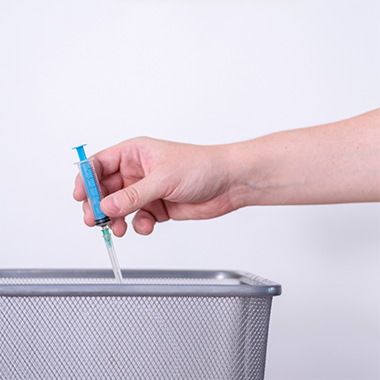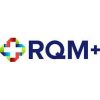Medical waste, often hazardous and infectious, poses significant environmental and health risks. From used syringes to contaminated bandages, the sheer volume of waste generated by hospitals, clinics and other medical facilities is staggering. According to the World Health Organization, developed countries produce up to 0.5 kg of hazardous medical waste per person per day. Such statistics underscore the urgency for innovative and sustainable disposal methods.
The Environmental Impact of Traditional Medical Waste Disposal
The traditional methods of medical waste disposal, such as incineration and landfilling, have long been the industry standard. However, these methods come with a heavy environmental price tag:
- Air Pollution: Incineration releases harmful pollutants, including dioxins, furans and mercury, into the atmosphere. These pollutants can lead to respiratory ailments and other health issues in humans and animals.
- Soil Contamination: Landfills, especially those not properly managed, can lead to the leaching of hazardous chemicals into the soil. This not only affects the soil quality but can also contaminate groundwater sources.
- Greenhouse Gas Emissions: Both incineration and decomposition of organic waste in landfills release significant amounts of greenhouse gases, contributing to global warming.
IoT: A Game Changer in Waste Management
The Internet of Things (IoT) refers to the network of physical devices embedded with sensors, software and other technologies to connect and exchange data with other devices and systems over the internet. In the context of medical waste management, IoT offers several benefits, including:
- Real-time Monitoring: Sensors attached to waste bins can relay information about the level of waste, ensuring timely disposal and reducing overflows.
- Optimized Routes: With real-time data, waste collection vehicles can optimize their routes, leading to fuel savings and reduced emissions.
- Data Analytics: By analyzing the data collected, medical facilities can identify waste generation patterns and implement strategies to reduce waste.
How IoT Devices Function in Waste Management
IoT’s utility in medical waste management is anchored in its technological prowess. Sensors placed in waste bins or on disposal vehicles can detect fill levels, temperatures and even the type of waste. The sensors relay the collected data to a centralized system using wireless communication protocols like Wi-Fi, Zigbee or LoRaWAN. Once the data reaches the central system, it’s processed using advanced algorithms. This helps in making real-time decisions, such as dispatching a collection vehicle or sending alerts for any anomalies. The processed data is presented to the end-users (hospital administrators, waste management personnel) through dashboards, mobile apps or notifications, enabling them to take informed actions.
Case Studies: Global Adoption of Smart Disposal Systems
Houston, a bustling metropolis known for its energy and space industries, is now making waves in the realm of sustainable medical waste management. By leveraging IoT, the city’s medical facilities have adopted smart disposal systems that are both efficient and eco-friendly. A notable mention in this domain is the service provided by medical waste disposal Houston, which exemplifies the seamless integration of technology and sustainability.
But the wave of IoT-driven medical waste management isn’t limited to Houston. Several cities and countries globally are adopting this sustainable approach. For example, Barcelona, Spain, has implemented smart waste bins equipped with sensors. These bins communicate with waste collection trucks, ensuring timely pickups and optimized routes. In Copenhagen, Denmark, hospitals use IoT devices to segregate waste efficiently, reducing the amount of hazardous waste and ensuring proper treatment. And in Seoul, South Korea, the city’s medical facilities employ smart disposal systems that not only manage waste but also track its entire lifecycle, from generation to final disposal, ensuring transparency and accountability.
Challenges in Implementing Smart Disposal Systems
While there are many benefits of IoT in medical waste management, the road to its widespread adoption is riddled with challenges, such as:
- Infrastructure Limitations: Many medical facilities, especially in developing regions, lack the necessary infrastructure to support IoT devices. This includes reliable internet connectivity, advanced data processing centers and trained personnel.
- Data Security Concerns: With the increasing number of connected devices, there is a heightened risk of cyberattacks. Ensuring the security and privacy of the data collected and transmitted is paramount.
- Initial Investment: The upfront cost of integrating IoT devices, software and other related technologies can be substantial, deterring many institutions from making the leap.
- Regulatory Hurdles: In many countries, the medical waste disposal sector is heavily regulated. Introducing new technologies often requires navigating a complex web of regulations and obtaining necessary approvals.
Overcoming the Barriers: Solutions and Innovations
Despite the challenges, several solutions and innovations are paving the way for the seamless integration of IoT in medical waste management, including:
- Public-Private Partnerships: Governments and private entities are collaborating to fund and implement smart disposal systems, sharing the financial burden and expertise.
- Advanced Encryption Techniques: To address data security concerns, IoT devices are now equipped with advanced encryption techniques, ensuring that the data transmitted is secure and tamper-proof.
- Training and Capacity Building: Institutions are investing in training programs to equip their staff with the skills needed to operate and maintain IoT systems effectively.
- Regulatory Reforms: Recognizing the potential of IoT in driving sustainability, many governments are revising their regulations to facilitate the adoption of smart disposal systems.
The Road Ahead
While the fusion of IoT and medical waste management is still in its nascent stages, the future looks promising. Integration with artificial intelligence (AI) is the next frontier in IoT. This will enable predictive analytics, where the system can forecast waste generation patterns and optimize disposal strategies accordingly. As IoT technologies become more affordable and accessible, we will see increased adoption of smart disposal systems, leading to global sustainability in medical waste management. The future might also see medical facilities adopting a circular economy approach, where waste is not just disposed of but is also recycled and repurposed, reducing the overall environmental footprint.
Actionable Insights for Business Professionals
For business professionals keen on venturing into the realm of IoT-driven medical waste management, here are some actionable insights to consider:
- Research and Development: Investing in R&D is crucial. Continuous innovation will not only improve the efficiency of the system but also offer a competitive edge in the market.
- Stakeholder Engagement: Engage with all stakeholders, from medical staff to waste disposal teams, to ensure seamless integration and adoption of the technology.
- Sustainability as a USP: In today’s market, sustainability is not just a buzzword but a genuine concern for consumers. Highlighting the sustainable aspect of your services can be a significant selling point.
- Continuous Training: The technology landscape is ever evolving. Regular training sessions for staff ensure they are up to date on the latest advancements and can operate the system efficiently.
Global Collaborations: The Key to Widespread Adoption
The challenges of medical waste management are not confined to a single region or country. It’s a global concern. Hence, collaborations across borders can accelerate the adoption of smart disposal systems. This will require knowledge sharing, where developed countries with advanced IoT systems can share their expertise and best practices with developing nations, aiding in their transition to smart disposal methods.
Joint ventures that allow companies to pool resources and expertise to implement and manage IoT-driven waste management systems in new regions will also be key to expanded adoption. International conferences and workshops act as a melting pot of ideas, innovations and solutions, and will be key to fostering the collaborations, partnerships and sharing of knowledge needed to fuel widespread adoption.
The confluence of medical waste management and IoT signifies a paradigm shift in our approach to sustainability. From reducing the environmental footprint of medical waste to optimizing resources and ensuring the safety of both medical staff and the general populace, the potential for positive change is immense.
For business professionals, this is an opportunity to make a tangible difference in the world, while also enhancing the efficiency of your organizations. By embracing the principles of innovation, collaboration and sustainability, we can pave the way for a future where medical waste management is safer, more efficient and eco-friendly.






